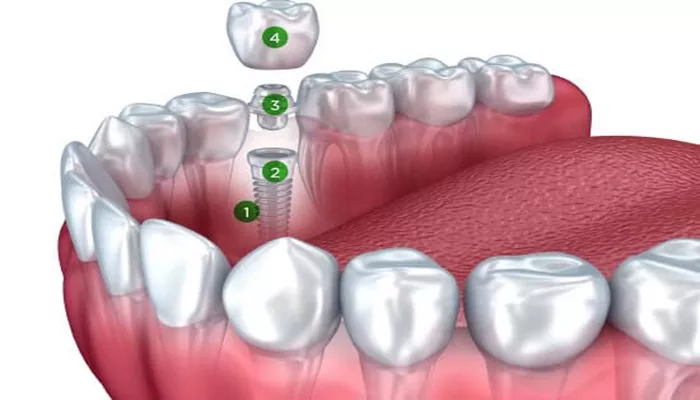Dental insurance is an important financial tool that can help individuals and families manage the costs associated with dental care. While public dental insurance programs exist, many people opt for private dental insurance to supplement or replace these public options. This article will explore the concept of private dental insurance, its benefits, how to choose the best plan, and provide some popular science insights from a dental professional’s perspective.
Understanding Private Dental Insurance
Private dental insurance is a type of insurance that individuals or families can purchase to cover the costs of dental treatments and procedures. Unlike public dental insurance, which is often funded by the government and may have stricter eligibility requirements, private dental insurance is offered by private companies and can be tailored to meet the specific needs of the purchaser.
Private dental insurance typically covers a range of dental services, including preventive care (such as regular check-ups and cleanings), basic treatments (like fillings and extractions), and major treatments (such as crowns, bridges, and orthodontics). The level of coverage and benefits can vary significantly between different insurance plans, so it’s important to carefully compare options before purchasing.
Benefits of Private Dental Insurance
Cost Management: Dental treatments can be expensive, especially if you need major work or have a family to cover. Private dental insurance can help manage these costs by covering a portion of the treatment fees. This can make dental care more affordable and accessible.
Preventive Care: Many private dental insurance plans cover preventive care services, such as regular check-ups and cleanings. These services are crucial for maintaining good oral health and preventing more serious problems in the future. By encouraging regular dental visits, insurance plans can help individuals stay on top of their oral health and avoid costly treatments.
Peace of Mind: Having dental insurance can provide peace of mind, knowing that you have financial support if you need dental treatment. This can be especially reassuring for those who have had unexpected dental problems in the past or who have a family history of dental issues.
Access to Specialists: Some private dental insurance plans provide coverage for visits to specialists, such as orthodontists, periodontists, and endodontists. This can be beneficial if you need specialized care for a complex dental problem.
Choosing the Best Private Dental Insurance Plan
When choosing a private dental insurance plan, there are several factors to consider to ensure you get the best coverage for your needs.
Level of Coverage: Consider the level of coverage you need. Some plans offer more comprehensive coverage, including major treatments and orthodontics, while others may focus more on preventive care. Make sure the plan you choose aligns with your dental health needs and budget.
Network of Providers: Look into the network of providers that the insurance plan covers. Some plans may only cover treatments performed by certain dentists or dental clinics. If you have a preferred dentist or clinic, make sure they are in the plan’s network.
Cost and Affordability: Compare the costs of different plans, including premiums, copayments, and deductibles. Consider your budget and how much you can afford to spend on dental insurance. Also, look into any discounts or incentives offered by the plan, such as lower fees for preventive care or cashback on certain treatments.
Customer Service: The quality of customer service can make a big difference when dealing with insurance claims and issues. Choose a plan with a good reputation for customer service and responsive support.
Additional Benefits: Some private dental insurance plans offer additional benefits, such as discounts on dental products, teledentistry services, or wellness programs. Consider these benefits when evaluating different plans to see if they add value to your coverage.
Popular Science Insights from a Dental Professional
As a dental professional, I often see the benefits and drawbacks of different dental insurance plans in my practice. Here are some insights based on my experience:
Importance of Preventive Care: Preventive care is the cornerstone of good oral health. Regular check-ups and cleanings can catch problems early and prevent them from becoming more serious and costly. Make sure your dental insurance plan covers these services.
Understanding Dental Treatments: Different dental treatments have different costs and complexities. Understanding what each treatment involves and its potential benefits can help you make informed decisions about your dental care and insurance coverage.
Managing Dental Anxiety: Dental anxiety is common, but it can be managed with the right approach. Some private dental insurance plans offer teledentistry services, which can allow you to consult with a dentist remotely and receive personalized advice and support.
Importance of Regular Dental Visits: Even if you don’t have any obvious dental problems, regular visits to the dentist are crucial for maintaining good oral health. Dental insurance can make these visits more affordable and accessible.
Considering Family Needs: If you have a family, consider their dental health needs when choosing a private dental insurance plan. Some plans offer coverage for children and may include additional benefits, such as orthodontic coverage or sealants for young children.
Conclusion
Private dental insurance can be a valuable tool for managing the costs of dental care. By understanding the benefits of private dental insurance and how to choose the best plan for your needs, you can take steps to protect your oral health and financial well-being. Remember to consider the level of coverage, network of providers, cost and affordability, customer service, and additional benefits when evaluating different plans. With the right dental insurance, you can have peace of mind and access to the dental care you need.
Related topics:

